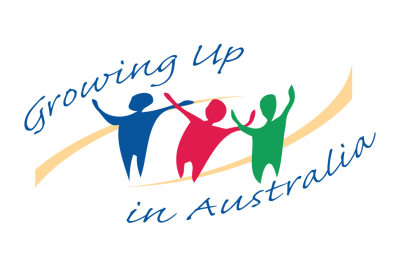Growing Up in Australia: The Longitudinal Study of Australian Children

About the study
Growing up in Australia: The Longitudinal Study of Australian Children (LSAC) is following the development of 10,000 children and their families across Australia.
LSAC tracks the children’s development and life course in today’s economic, social and political environment. Aims of the study include:
- identify opportunities for early intervention
- improve support for children and their families.
The study investigates the effect of children's social, economic and cultural environments on their wellbeing over the life course. LSAC has a broad multi-disciplinary base. It examines policy-relevant questions about development and wellbeing. The research questions span:
- parenting
- family relationships
- education
- childcare
- health.
By tracking children over time, the study can determine factors associated with consistency and change in developmental pathways.
Visit the Growing up in Australia website for information about the LSAC study(Opens external website).
Learn more about the study in the LSAC fact sheet.
Study participants
LSAC commenced in 2004 with 2 cohorts of 5,000 children each, aged 4 to 5 and 0 to 1 years. Participants are a representative sample of children of these ages across Australia at the time. We collect data every 2 years. Parents (both residents and non-residents), carers and teachers of the children take part in the study. The children participate in the study when they reach an appropriate age.
Table: LSAC sample size and response rates
This table shows for each wave the number of LSAC participants who responded and the retention rates.
| Persons | In-scope population (number) | Respondents (number) | Wave response rate (%) | Retention rate of wave 1 (%) |
| Wave 1 | - | 10,090 | - | - |
| Wave 2 | 9,960 | 9,070 | 91.1 | 89.9 |
| Wave 3 | 9,800 | 8,717 | 89.0 | 86.4 |
| Wave 4 | 9,703 | 8,411 | 86.7 | 83.3 |
| Wave 5 | 9,619 | 8,041 | 83.6 | 79.7 |
| Wave 6 | 8,878 | 7,301 | 82.2 | 72.4 |
| Wave 7 | 8,494 | 6,470 | 76.2 | 64.1 |
| Wave 8 | 7,973 | 6,164 | 77.3 | 61.1 |
| Wave 9C1 | 7,658 | 3,806 | 49.7 | 37.7 |
Notes:
- Response rates are calculated as a percentage of the in-scope participants at the commencement of fieldwork for each wave. Response rates are not provided for wave 1.
- Retention rates are calculated as a percentage of the wave 1 participants who completed each wave. They do not account for participants who are no longer in-scope (for example, moved overseas, passed away) or new sample members recruited in subsequent waves. Therefore, they only partially reflect the full response picture.
- The response rate for Wave 9c2 was affected by COVID lockdowns.
LSAC Child Health Checkpoint
In 2014–15, we offered a special one-off physical health assessment to the 11 to 12 year olds and their parents. The assessment aimed to learn more about the health of young people as they become teenagers. This information informs how a child’s first decade influences their health as they approach teenage years.
Visit the Murdoch Children’s Research Centre website for information about the LSAC Child Health Checkpoint(Opens external website).
Governance
The Australian Institute of Family Studies coordinates the design and content of the study. They prepare research and statistical reports on the data.
A consortium of leading researchers provides ongoing advice and technical expertise. The researchers are from a diverse range of disciplines including:
- education
- psychology
- economics
- paediatrics.
Visit the Growing up in Australia website for information about the research team(Opens external website).
How to access the data
LSAC data is available for free through the Australian Data Archive Dataverse platform.
The data is for approved researchers from government, academic institutions and non-profit organisations.
Visit Dataverse(Opens external website).
Learn more about how to apply for access to our datasets.
Research and publications
LSAC data has improved our understanding of the issues facing children and young adults in Australia. The following links are to research publications and reports that use or reference LSAC data.
Visit the Growing up in Australia website for LSAC research findings(Opens external website). This includes a snapshot series, statistical reports, research reports and conference abstracts.
Research Summary No.2/2015: Domestic violence in the Longitudinal Study of Australian Children (LSAC) by Helene Shin, Helen Rogers and Vincci Law
Visit the Growing up in Australia website for LSAC technical papers(Opens external website).
Find other research publications using LSAC data on our FloSse Research(Opens external website) website.
ABC Life At series
The ABC's Life At television series was inspired by the study. It followed 11 children and their families over time. The program referenced findings from the study throughout.
Contact us
For more information about the LSAC study, contact LongitudinalStudies@dss.gov.au.